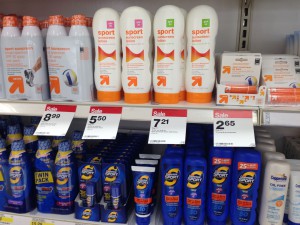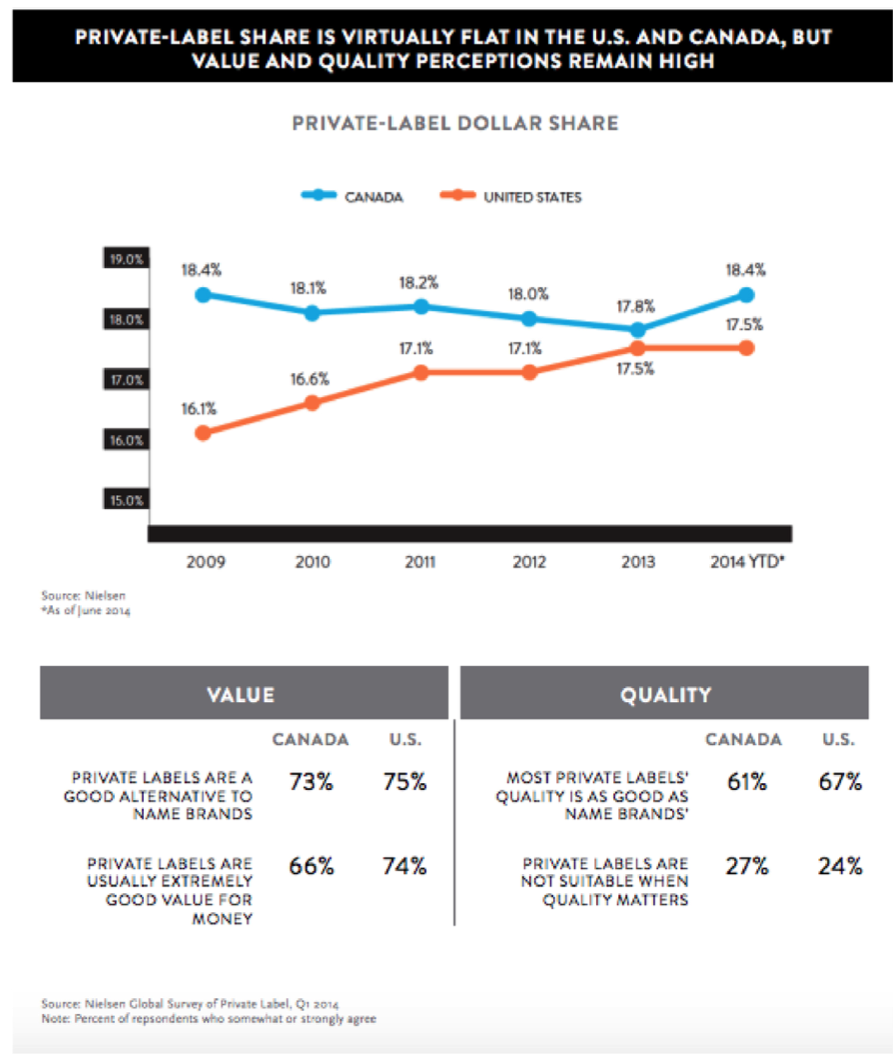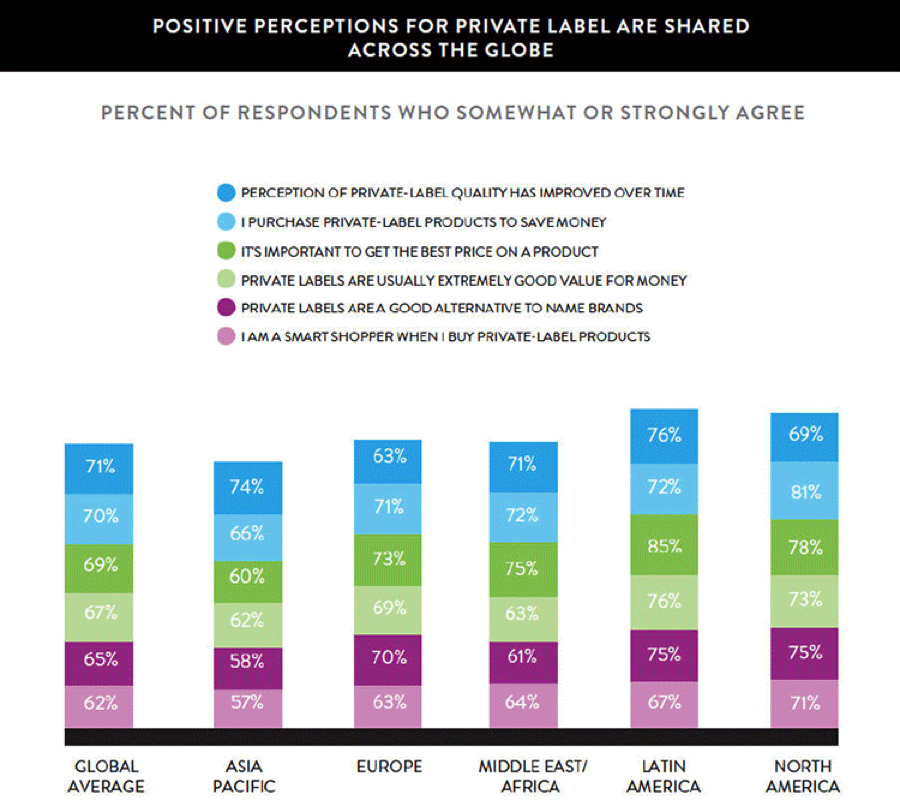The Growth of the Private Label
[su_column size=”1/3″] [/su_column]Frozen vegetables, canned foods, light bulbs, trash bags, and allergy medicine all have one thing in common – you can find all of these products on the shelf at the grocery store under a generic store-brand. No matter what product, nationally recognized name brands tend to cost more than their generic “store-brand” or “private label” counterparts. The economic downturn increased the popularity of private labels offering a cheaper alternative to name brand products. Ten years ago there may have been a distinct gap in the level of quality between private label and name brand products. Today the gap almost no longer exists. Sometimes, private labeled products are even made by the same companies that produce the higher-priced name-brand items.
[/su_column]Frozen vegetables, canned foods, light bulbs, trash bags, and allergy medicine all have one thing in common – you can find all of these products on the shelf at the grocery store under a generic store-brand. No matter what product, nationally recognized name brands tend to cost more than their generic “store-brand” or “private label” counterparts. The economic downturn increased the popularity of private labels offering a cheaper alternative to name brand products. Ten years ago there may have been a distinct gap in the level of quality between private label and name brand products. Today the gap almost no longer exists. Sometimes, private labeled products are even made by the same companies that produce the higher-priced name-brand items.
What is a Private Label?
Private label products are typically those manufactured or provided by one company for sale under another company’s brand. Private label goods and services are available in a wide range of industries from food to household products to cosmetics. They are often positioned as lower-cost “generic” alternative to regional, national or international brands.
Four Benefits of Private Labels for Retail Stores:
1. More Profitable For Major Chains
Generic, store-brand sales are often more profitable than those of national brands. Major chains have been putting more effort into bringing generics to the marketplace.
2. Control
Private labeling allows more control over things like branding, pricing, marketing, sales and distribution. For retailers, margins on private label goods are an average of 10% higher than those on similar branded products with higher margins possible.
3. Exclusivity
Private label products are only available from the retailer-customers will not go into a popular big box store and find the private brand at a lower price. For example, you cannot find Archer Farms, a Target brand, at Walmart.
4. Innovation
Typically, innovation has been a core strength for name brands, but retailers are increasingly stepping up their game and delivering new products that fulfill the evolving needs of the shopper. Sustainable, fair trade products, and award-winning packaging are now seen in private label brands.
Why Consumers Like Private Label:
1. Price
Price is the primary driver of consumers’ purchase intent for private label. Seventy percent of people say they purchase private label brands to save money.
2. Quality and Value
According to the Nielsen Company Report, The State of Private Label Around The World, consumers are seeking quality and value, something that private label delivers. Sixty-seven percent believe private label offers good value for the money and 62% say buying private label makes them feel like a smart shopper.
Positive Perceptions for Private Label are Shared Across the Globe
Check out this report posted by the Nielsen Company and get an idea of how private labels are viewed throughout the world:
To access the full report on The State of Private Label Around The World by the Nielsen Company:

